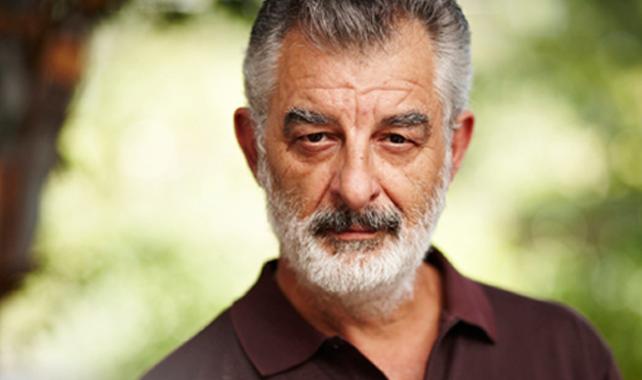
The Slap, Episode 6, “Manolis”
Thursday, 8:30pm, ABC1
Stream on ABC’s iView
As someone who thrives on thinking I am winning over other people’s parents, I’m delighted to spend an episode around Hector’s dad. ‘Manolis, it’s SO lovely to finally meet you, well I’ve met you before but properly I mean! You have such a lovely home – I can’t believe you grow your own tomatoes!’ (Killing. it.) It is also an opportunity to patronise my elders and make reductive conclusions about natures vs. nurture – another perk that comes with meeting someone’s folks.
This episode repeats what has become the recurrent structure of the series: a before and after comparison of the patter of the protagonist’s life, enabled by a significant event wedged in-between. In Anouk’s case it was her unexpected pregnancy, Connie’s catalyst for self-exploration was the passenger-seat tryst with Hector, and Rosie’s story was folded between BCC and ACC (before/after court case, an abbreviation I will obviously never use again). For Manolis, it is the unexpected death of a lifelong friend that becomes the incident the rest of the episode pivots around. In each of these cases, the outside act triggers a crisis in identity, and we see Manolis trying to grapple with his role within his own family, the Greek expat community, and the male species.
Watching the funeral scenes I realised this was the first time I’d been in a church since K8 Middleton’s wedding – it works well as a setting to interrupt life’s domestic rhythms.
The heightened emotional register that comes with a death also makes for a good stage to tease out the big questions in this week’s episode, or the topic headings in a course outline for an adult education seminar on Greek mythology. We’ve got Duty, Friendship, Marriage, Guilt v. Shame cultures, God- the works. Adding to the classical feel of the episode, much of it plays out in subtitled Greek. (Which actually gives us some far more enjoyably idiosyncratic language than the functional English of the other stories).
I bet director Tony Ayres and screenwriter Kris Mrska somehow caused the Greek debt crisis because it really gives this episode a bit of extra-presience. The Greek economy is limping along, much like Manolis. Though as we watch him padding around Melbourne in his paunchy Granddad outfits, it is clear that the pathos economy is in full surplus. He gets pushed to the floor in an ugly, unjust argument with an old enemy after the funeral. He drunkenly Greek dances with a dying friend and also in front of a share house of beer drinking youth. And he sits awkwardly in the Melbournest café ever, failing to broker peace with Aisha over the ill-fated trip to Greece introduced in Episode 1. Unlike his wife Koula, more tethered to her fixed views about the world, he tries to bargain with the world. Only the world, as it turns out, isn’t all that interested in him.
This is as much a ‘Hector’ episode as a Manolis one, which is because Manolis’ family has monopolised his adult identity and also for purely pragmatic reasons – Hector’s week 1 episode was hijacked by the premise of the series. Hector continues to wage his own epic internal battle with Connie, as he receives some phantom text message suggesting he’s raped her. He responds in a practical way – he rings the phone company, then he rings Connie, and then in a nice moment of post-funeral candour- he confides in Manolis about what he’s done (omitting the Nabakovian specifics).
Their generational differences are captured in a little conversation after Manolis leaves the funeral, following his fight. Manolis, deeply shamed, says ‘I can never see those people again’. Hector responds ‘So? You never see them anyway’. Hector contends with Themes (his name alone is a reference to Homer’s Iliad and the divisive family battle that occurred therein) but he deals with them like someone in a different TV show to his stormy old-fashioned father. Hector would make a good character on Rake.
I was intermittently eye-rolly throughout this episode – some of the scenes were quite moving (particularly his visit/dance with his oldest dying friend), but some of Manolis’ actions and decisions felt more indebted to the melodramatic tone of this series than naturally arising from the character himself. He seemed way too gentle to get aggressive with Aisha over the trip to Greece, or to end up with a prostitute. Or perhaps I was just disappointed that he did. Throughout this hour we get lots of Hi-Res close ups of Manolis/Lex Marinos’ face – all veiny, age-spotted skin and coarse grey hair sprouting out of substantial follicles – it’s like a hyper real portrait from that Andrew Zuckerman coffee table book. I suppose it doesn’t really matter what exactly is going on inside that specific head- it’s that we recognise it is a head and give it the benefit of the doubt as a receptacle of all the possibilities of the entire human experience.
Ok, see you next week. Can somebody pass me a tub of Greek yoghurt?
Sophie Braham is a writer from Sydney. She tweets here



